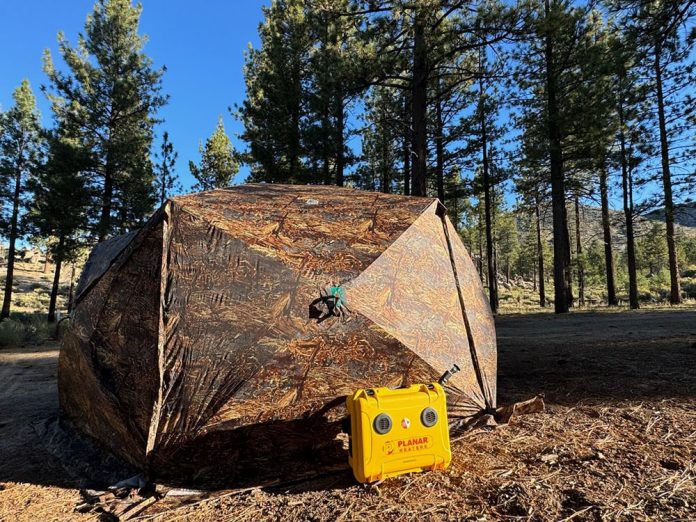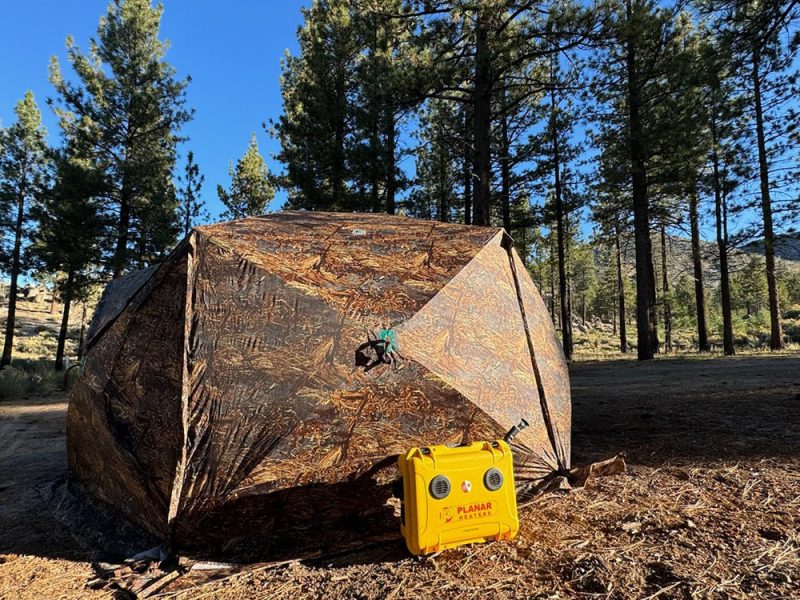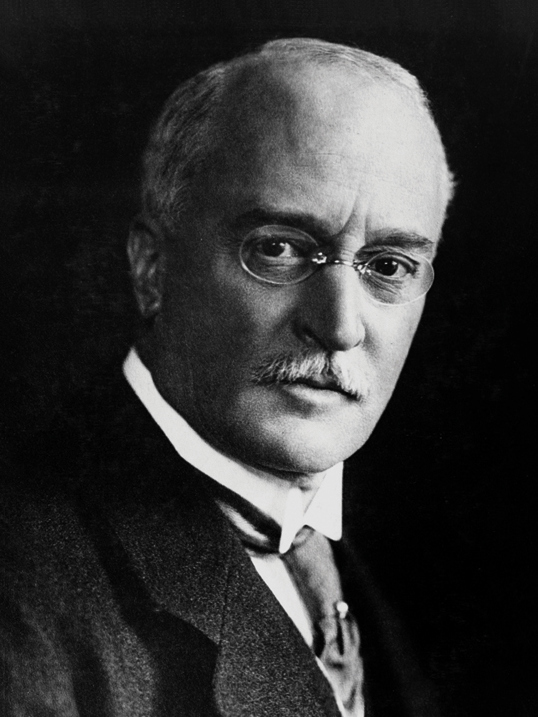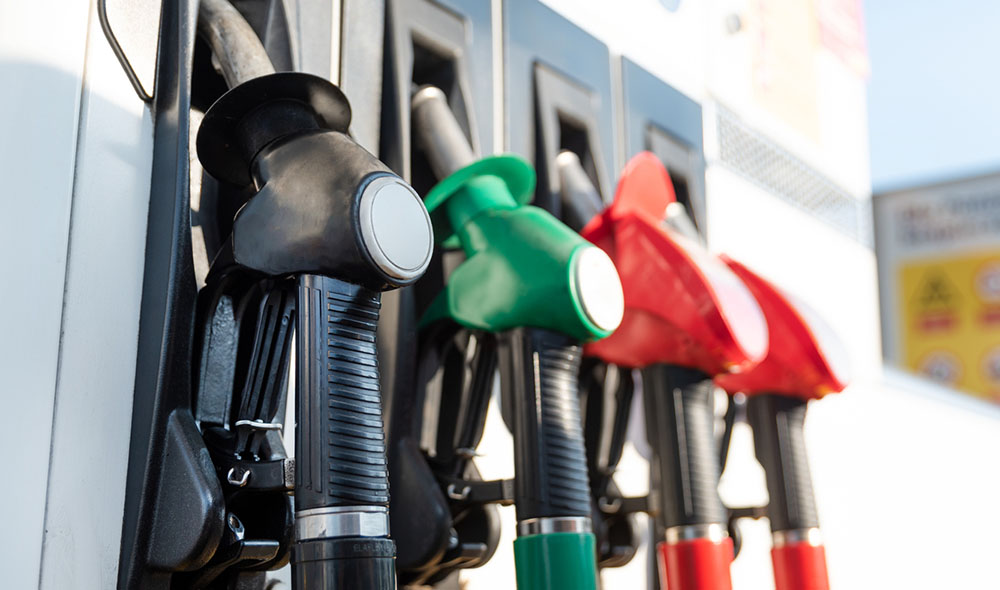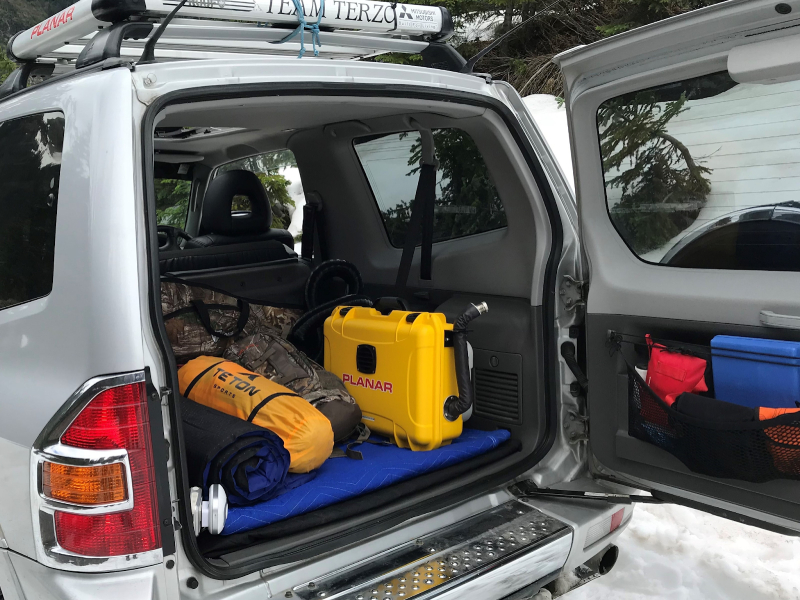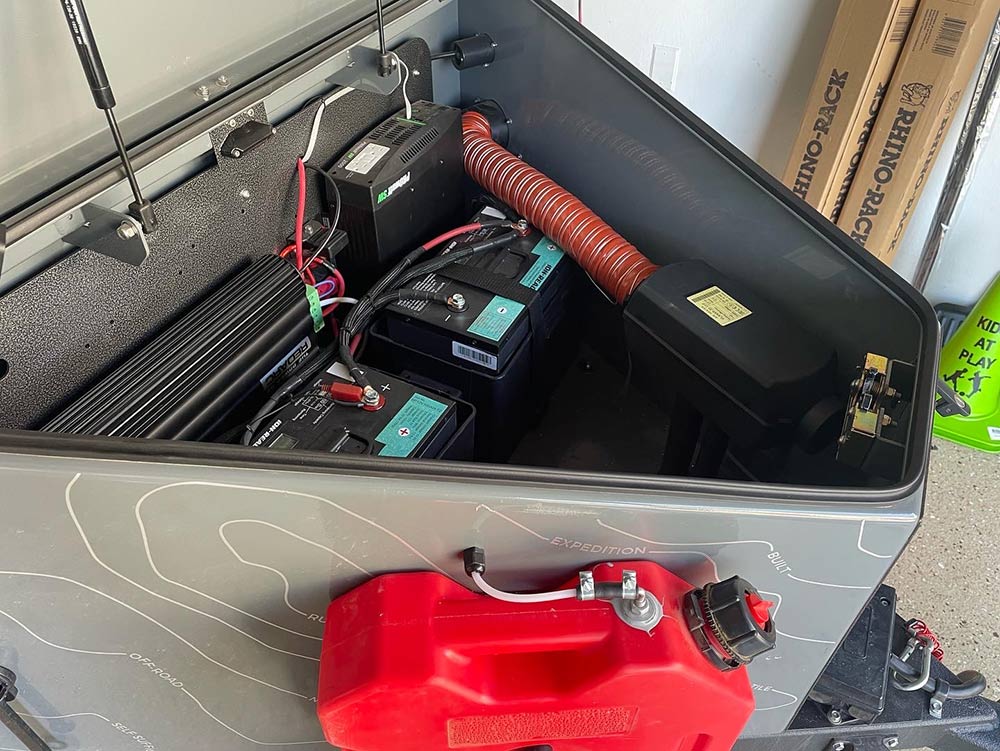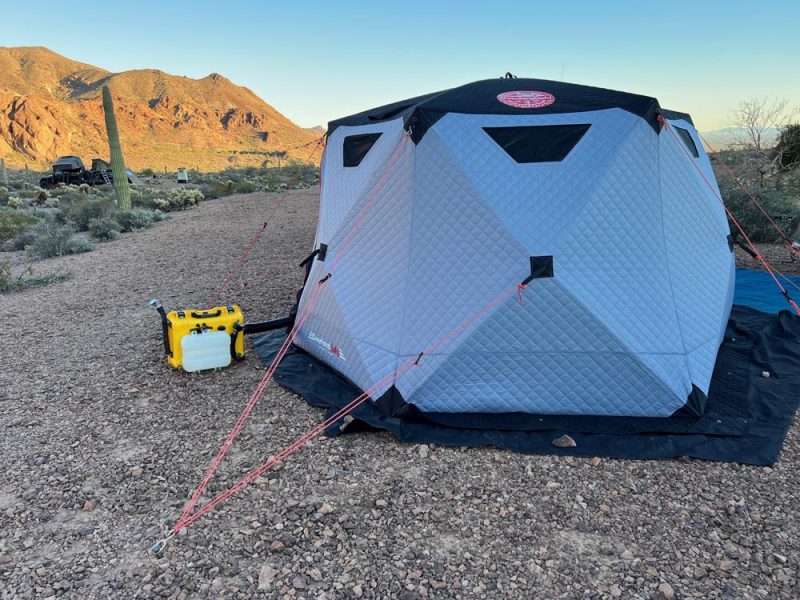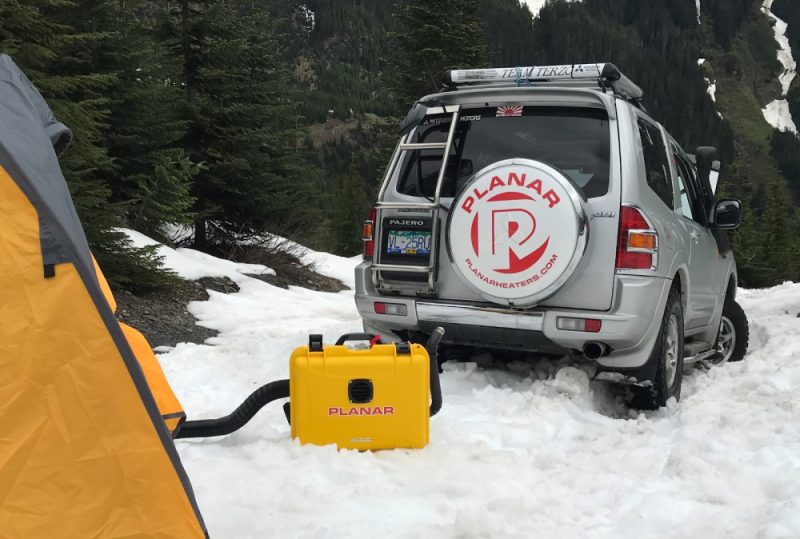If there’s one thing we can all agree on, it’s that nobody enjoys being cold, especially when it comes to a good night’s sleep!
As winter approaches and the temperature drops, it’s essential to ensure that your diesel heater is in prime condition for fall and winter camping trips.
In this quick guide, I’ll cover a few things I’ve learned from my experiences having diesel heaters. Though I’m no expert, I’ve learned some stuff that you should know about maintaining your diesel heater to keep you warm and cozy during your winter camping adventures.
Table of Contents
- What is Diesel?
- Pros & Cons of Diesel
- Maintaining Your Diesel Heater
- More About My Diesel Heaters
- Preparing for Winter Camping
What is Diesel?
Let’s start by delving into the basics of diesel fuel, a crucial component of your diesel heater.
A Brief History of Diesel Fuel
Public Domain via Wikimedia Commons
Diesel fuel is named after Rudolf Diesel, a German inventor who patented the diesel engine in the 1890s. While the exact origin of the first diesel heater is challenging to pinpoint, it likely evolved gradually after the invention of the diesel engine.
Differences Between Diesel and Gasoline
Photo by simpson33 via iStock
Diesel fuel is distinct from gasoline, as it is derived from crude oil and biomass materials, such as animal fat and vegetable oils. The combustion process in diesel engines differs from that in gasoline engines, with higher compression ratios being the key factor. Diesel offers several advantages over gasoline, including greater energy density, reduced flammability, and increased efficiency.
Pros & Cons of Diesel
Now, let’s explore the pros and cons of using diesel fuel, which will help you understand why it’s a preferred choice for heaters.
Advantages of Diesel
- Greater energy density, providing more energy per unit volume.
- Lower flammability and explosiveness, enhancing safety during camping trips.
- Diesel engines are less likely to stall, ensuring reliable heating during winter adventures.
- Diesel engines are more powerful, efficient, and reliable.
- Although diesel may be more expensive than gasoline, the higher potential energy offsets the cost difference.
Disadvantages of Diesel
- Higher initial cost compared to gasoline heaters.
- Availability of diesel fuel may be limited in some remote locations.
- Diesel heaters require regular maintenance to ensure optimal performance.
Maintaining Your Diesel Heater
Now, let’s get hands-on and discuss the essential maintenance steps for your diesel heater. I’ll use my Autoterm diesel heater that I’ve installed in the nose of my Turtleback Expedition Trailer and my Planar Heaters portable diesel heater as examples.
My diesel heaters actually require very little maintenance because they are impeccably designed and built. Cheap diesel heaters, on the other hand, often use cheap parts and accessories that lead to more frequent maintenance (and potentially frequent repairs, too).
In my case, I really only need to regularly check for signs of wear and tear. I also need to fire up the heaters occasionally. That’s about it! A cheap heater, on the other hand, might require replacing worn-out parts, cleaning various components of the heater, checking for clogs, and so forth.
You can see how simple it is for me to maintain my diesel heaters in the video above.
More About My Diesel Heaters
As I noted earlier, I have an Autoterm diesel heater installed in the nose of my trailer (shown above) and a Planar Heaters portable diesel heater as well. Both heaters are made by the same Canadian company that’s been in this business for a long, long time.
That experience means that these heaters are well-designed, perform well, and offer reliable service. I’ve had the Autoterm 2kw heater in my trailer for a couple of years now, and it has been an absolute champ for my fall and winter camping trips. It’s the perfect size to keep my rooftop tent warm, and it’s easy to set up, too…
I simply connect the duct to the port in the nose of my trailer, extend the duct up to my tent, fire up the heater, and voila – instant, dry heat!
The portable heater I have from Planar heaters is a 4kw model. I use this heater when I’m using one of my ground tents, some of which are quite large, thus the need for a more powerful heater.
What I love about the portable diesel heater is that it sits outside the tent, thereby reducing the likelihood of dangerous fumes inside the tent. I just set it up a few feet away, connect it to a 12V battery, extend the duct into the tent, and enjoy a warm tent all night long!
Like the smaller 2kw heater in the nose of my trailer, I’ve had the 4kw portable diesel heater for a couple of years. I’ve never had any problems with this heater, and have instead been thoroughly impressed by its performance, durability, and ease of use over the years.
Preparing for Winter Camping
With your diesel heaters in top shape, you’re now ready to embrace the winter camping season with open arms.
Before heading out, perform a final check on your heaters. Ensure they start up without any issues and produce that glorious warm, dry air you’ll rely on during your winter adventures.
As the colder weather approaches, you can look forward to your first snowy camping trip. With well-maintained diesel heaters by your side, you’ll stay warm and comfortable, allowing you to fully enjoy the beauty of winter camping.
Stay warm, stay safe, and happy camping!
Heads up: Clicking on our affiliate links and exploring our sponsored content helps us at no extra cost to you, and we only recommend gear we’re absolutely crazy about!



